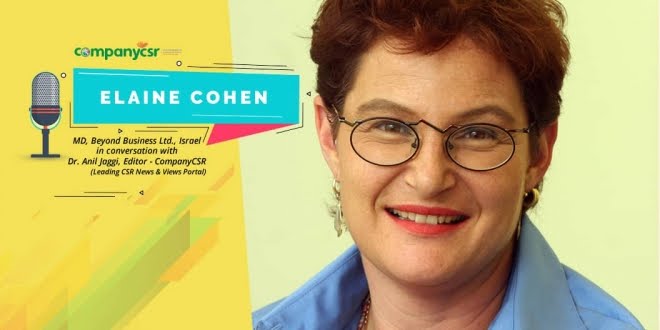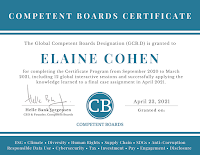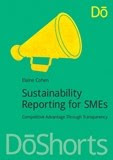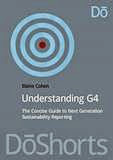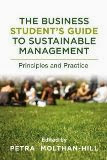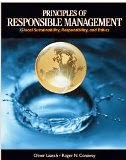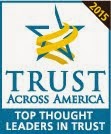In early November, I was treated to a tour of Sky Studios by Rachel Depree and Briana Inlow who lead stakeholder engagement and reporting for Sky’s approach to sustainability, Seeing the Bigger Picture. It was all very exciting. I went backstage and met the presenters (Di Dougherty and Darren Campbell) of the Sky Game Changer Series. They were preparing for the new edition with Olympic hurdler Perri Shakes-Drayton who was to share hurdling tips with the Game Changers young school-kid audience. While I didn't learn to hurdle (I am somewhat hurdlingly challenged) I was able to watch the program that aired on Sky Sports TV the following day. Sorry to say, I still can't hurdle... but lots of kids now can.
 |
| Click here to view |
The fabulous thing about the Game Changer series is that it's not only changing games, it's changing the lives of thousands of young children. Now in its second year, the program invites schoolchildren from all over the UK to take part in a live show that airs every Saturday morning, targeted at kids between ages 8 and 12. Each show has a different sports-related theme and hosts sporting superstars or well-known sports personalities to inspire and help the kids discover or deepen their love of sports. Anyone can apply for a free ticket and take part in the fun. But it's more than fun. In our current sedentary, electronic-game, TV-screen, computerized, interactive, tablet-phablet-laptop-desktop digital world, the dangers of kids being glued to big screens and small screens for most of their spare time is quite a real one. Game Changers is helping to draw kids into the world of sports and off their armchairs - even watching the show on TV encourages active participation, alongside the hundred or so kids that attend the live show each week. This is a CSR initiative that brings value to the community in an area of genuine social need, while also providing Sky Sports with an attractive high-rating TV show as part of their programming. Sounds like a win for business and a win for society. For me, seeing the set and meeting the people in person also helped me get a sense of the passion and purpose behind the camera lens.
While at Sky, I also had the opportunity to visit and talk with students who come to learn at Sky Academy Skills Studios. Sky Academy is a set of initiatives which use the power of television, creativity and sport to inspire young people and help them build skills and confidence. Sky Academy Skills Studios provide an interactive learning experience that takes schools behind the scenes at Sky. Students build life skills by using state-of-the-art technology to make a TV news report on subjects they’re studying at school.
Over 30,000 young people aged 8 to 18 have visited Sky's Skills Studio in West London since it opened in 2012 - current rates of visits are around 1,000 per month. This is a fantastic way of using core business skills that are part of what Sky does every day as an opportunity for young people to develop skills like teamwork, communication and creativity, handle technology, and perhaps even find their vocation. The Studios are quite spectacular and offer an amazing experience for young people in a very real simulation setting. Talking in front of a camera is no easy feat... as I well know when I personally tried (and failed) to record a series of videos on sustainability. Building both the skill and the self-confidence to get your message through is a gift for life that the Skills Studios offer to thousands of young people.
Game Changers and Sky Academy Skills Studios are just a small part of Sky's overall approach, which they call Seeing the Bigger Picture. Take a look at Sky's most recent Seeing the Big Picture Summary Report for 2014. Sky's website provides a more comprehensive overview of their initiatives and performance data, as well as news articles and blogs posted throughout the year.
Seeing the Bigger Picture is integrated as part of Sky's business model and is based on three pillars: making a contribution, responsible business practices, and inspiring action in the community to improve quality of life.Game Changers and Sky Academy Skills Studios are just a small part of Sky's overall approach, which they call Seeing the Bigger Picture. Take a look at Sky's most recent Seeing the Big Picture Summary Report for 2014. Sky's website provides a more comprehensive overview of their initiatives and performance data, as well as news articles and blogs posted throughout the year.
As part of its reporting, Sky calculates is economic contribution to the UK economy and quotes a significant £6bn added to the economy and creation of 117,000 direct jobs. In addition, Sky is the biggest commercial supporter of the creative and sports industries
in the UK, working with more than 150 production companies in the last 12 months, providing
a platform for their creativity and helping them grow their own businesses with a £2.6 billion content and programming investment.
In addition to economic impact, however, it is always interesting for me to consider the more core-business social impact of the programming and broadcasting choices that media companies make. I have tracked the work of the Media CSR Forum, of which Sky is a member, for some time now, and find the Mirrors or Movers publications - is the media a reflection or a transformer of society? - to be insightful and thought-provoking.
Here are some of the things that Rachel Depree, who heads up engagement and reporting initiatives at Sky, told me during my visit and our chat about Sky and its Bigger Picture journey:
"For Sky, we know reducing our environmental impacts and making sure families can stay safe online are what our customers expect of us day to day. They’re simply doing the right thing as a business. The real opportunity for Sky is the ability we have to inspire people to take action through our presence in over 40% of UK and Irish homes.
We’re really proud of Sky Academy, which builds on our strengths in TV, sport and the arts to help young people unlock their potential. The stories of those who’ve taken part are inspiring. Our challenge is to keep making sure we capture the value this is creating for Sky and for wider society.
We’d love for people to take a look at our reporting and tell us what they think. Alternatively, they could tune in to Game Changers on Sky 1, Saturday mornings, and practice their hurdling!"
Thanks to Rachel and Briana for hosting me for an enlightening and energizing visit. Just one more thing to love about working in sustainability. Now, remind me where I put those hurdling fences......
elaine cohen, CSR consultant, Sustainability Reporter, HR Professional, Ice Cream Addict. Author of Understanding G4: the Concise guide to Next Generation Sustainability Reporting AND Sustainability Reporting for SMEs: Competitive Advantage Through Transparency AND CSR for HR: A necessary partnership for advancing responsible business practices . Contact me via Twitter (@elainecohen) or via my business website www.b-yond.biz (Beyond Business Ltd, an inspired CSR consulting and Sustainability Reporting firm). Check out our G4 Report Expert Analysis Service - for published G4 reports or pre-publication - write to Elaine at info@b-yond.biz to help make your G4 reporting even better.
























